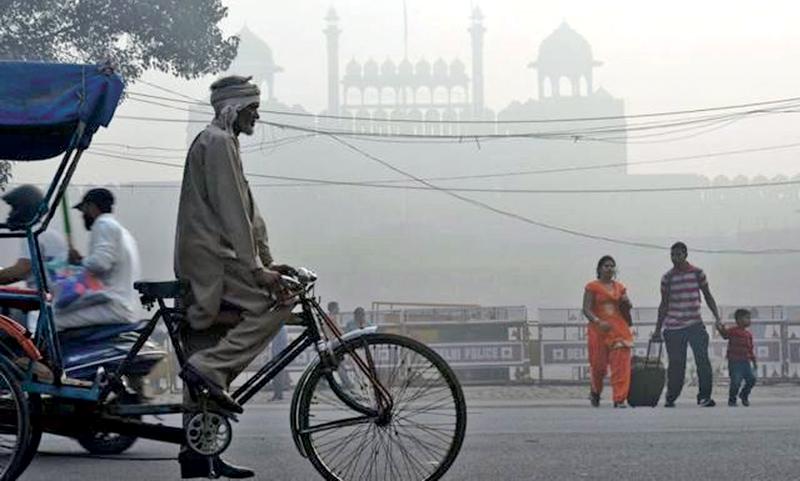
Twitter users in the smog-choked Indian capital Delhi have criticised the re-introduction of car rationing as a “tokenistic” effort to curb pollution.
Under the “odd-even” scheme, private cars with even and odd number plates will only be allowed on the roads on alternate days from 13 to 17 November.
Delhi tried car rationing twice before. Experts say that it reduced traffic but had little impact on pollution.
Delhi’s air, among the world’s dirtiest, worsens in the winter months.
This happens because farmers in neighbouring Punjab and Haryana states burn crop stubble to clear their fields.
Low wind speeds, dust from construction sites, rubbish burning in the capital and firecrackers used in festivals contribute to increased pollution levels. Why then, some of the city’s residents asked on Twitter, did authorities wait until the onset of winter this year to pass legislation on car rationing?
Delhi chief minister Arvind Kejriwal, who has called the city a “gas chamber”, drew personal flak on Twitter for relying on car rationing and other emergency measures to clean up the city’s air instead of implementing longer-term solutions.
“Tokenism” was a word used repeatedly to refer to the measure. Overall, however, there was a sense of frustration that little is perceived to have been done by the government to improve the quality of air.
Nikhil Pahwa, an activist and journalist who has written about air pollution, outlined 22 different ideas on Twitter to curb it, adding that the government has long been aware of such measures.
Delhi is not the only Indian city with toxic air. Large parts of northern India are also affected - in fact the air in some cities is worse than in Delhi.
Reports say that the air in Lahore, Pakistan’s second-largest city, is equally thick with smoke and particulate matter - tiny pollutants that can lodge inside the lungs and enter the bloodstream.
The National Green Tribunal, India’s top environment court, is still reviewing the car rationing scheme.
The Delhi government has also temporarily banned construction work in a bid to improve conditions, and has increased parking fees to discourage people from driving their cars.
A day before the government’s announcement, pollution levels in the city had reached 30 times the World Health Organization’s recommended limit in some areas.
- BBC.com
